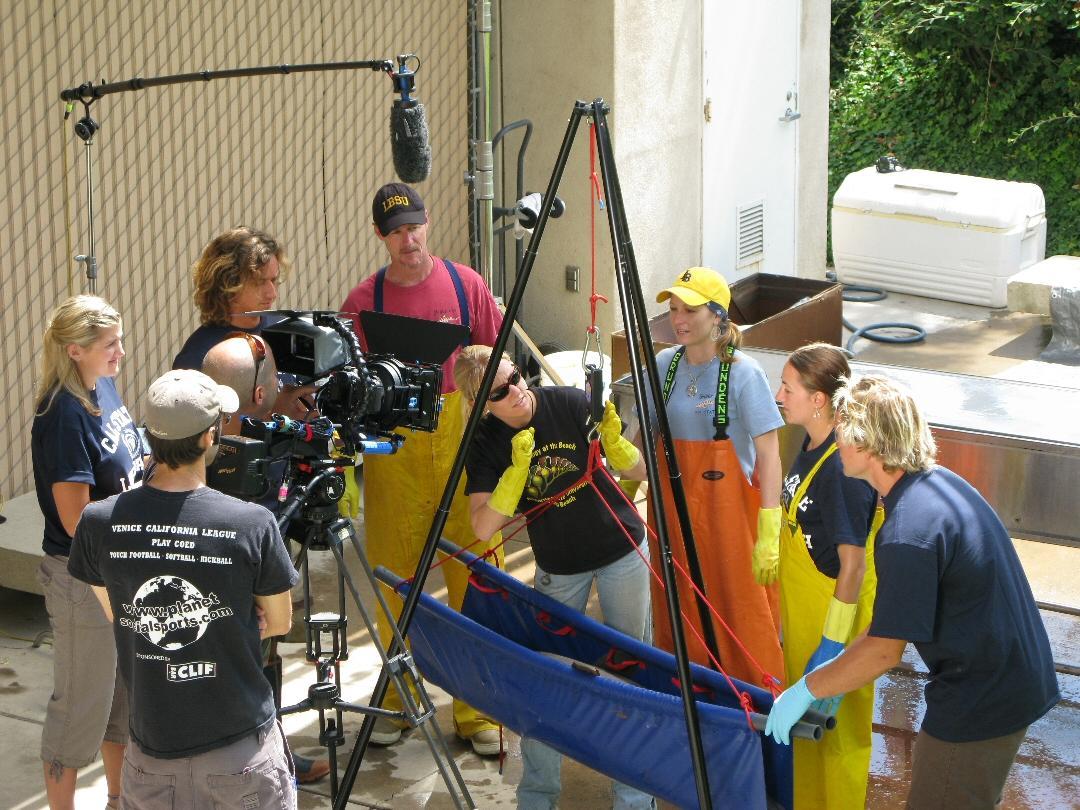Christopher Lowe’s family sought out fish as a form of food. Now, Lowe seeks out fish in order to protect them.
“My mother’s family comes from 200 years of seamen, fishers, whalers,” Lowe said. “I was the first to consider marine biology as a profession and focus on saving fish rather than hunting them.”
Lowe, a Cal State Long Beach marine biology professor, grew up on Martha’s Vineyard and spent all of his time in the water. After watching his family scrape by on a fisherman’s salary, he decided he wanted to break the family mold.
Lowe received his bachelor’s degree at Barrington College, a small Christian school in Rhode Island, where he got the opportunity to work with renowned behavioral biologist Don Nelson.
Nelson taught marine biology classes at CSULB, and established the on-campus Shark Lab in 1966.
While working with Nelson, Lowe realized he wanted to attend graduate school at CSULB.
Much of his graduate work consisted of compiling research and building new tracking devices to monitor the movement of sharks.
When CSULB was in need of an ichthyologist, or shark scientist, Lowe was hired to teach and supervise the Shark Lab.
“Long Beach is unique in that we have the longest standing shark studies laboratory on the west coast,” Lowe said. “I was honored to continue Nelson’s legacy at the school.”
Lowe’s work was noted by Discovery Channel in 2011, when he appeared on “Shark Week.” The show was filmed live as it followed Lowe’s team tagging and tracking baby great white sharks.
“The ability to target 20 million people is so beneficial for my research, but it’s hard to keep the message clear when the ‘Jaws’ theme is always playing in the background,” Lowe said.
In an ongoing collaboration between Monterey Bay Aquarium and the CSULB Shark Lab, a team at the aquarium tracks migration and records data on sub-adult and adult great white sharks.
The adult sharks are more prevalent in colder waters north of Point Conception in Santa Barbara, while the warmer waters between Point Conception and Baja California are home to newborn sharks.
CSULB students study the seasonal migration of the baby white sharks in an attempt to determine where they go and when they reach maturity and leave our coast. They also monitor the levels of toxins such as mercury and DDT in the sharks.
Lowe’s research has shown an increase in the white shark populations, but he said the toxicity levels worry him.
“I have to be careful how I say this because I’m speaking from both sides of my mouth,” Lowe said. “While the population is growing, the toxin level is also on the rise.”
His team is still trying to determine what the toxins’ long- and short-term effects will be on population growth.
In an effort to increase data collection, Lowe has enlisted the help of computer scientists from Cal Poly San Louis Obispo to design robots to track the sharks.
The robots use algorithms to analyze migratory patterns of sharks and constantly collect information about them, their position and the surrounding water. The robots also have the ability to “learn” from their experiences and create new algorithms to better track the sharks.
“Robots can track the sharks more efficiently and record way more data than we ever could, and, to me, that is completely bitchin’,” Lowe said.




